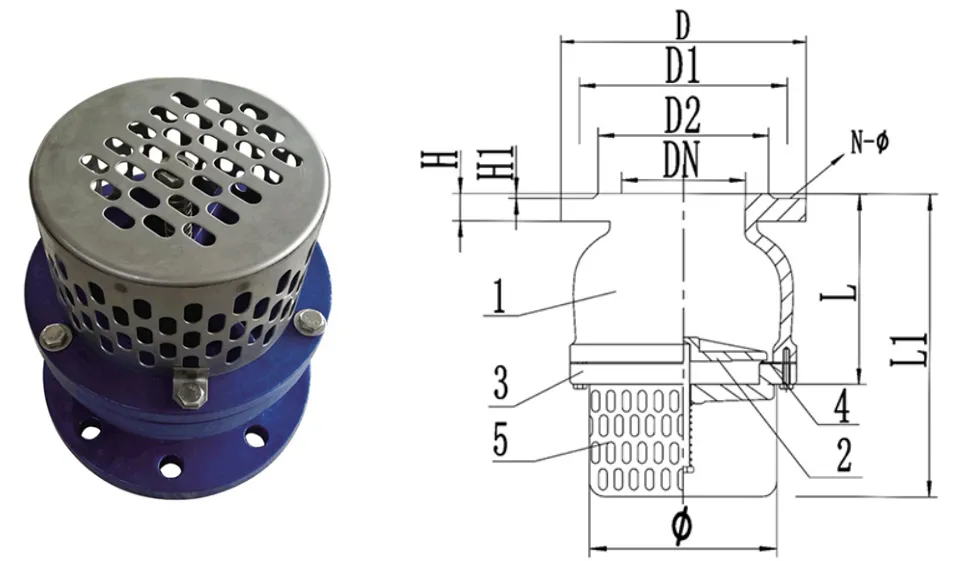ಡಿಸೆ . 01, 2024 14:27 Back to list
Design and Functionality of RSV Gate Valves in Industrial Applications
An Overview of RSV Gate Valves Functionality and Applications
Gate valves are a crucial component in many industrial and municipal applications. They offer a reliable means of controlling the flow of fluids and gases, making them indispensable in various systems. Among the different types of gate valves, RSV (Resilient Seated Valve) gate valves stand out due to their unique design and functional advantages.
What is an RSV Gate Valve?
An RSV gate valve is a type of valve that is designed to provide minimal flow restriction when fully opened. Unlike other types of valves that can partially obstruct flow, gate valves allow the fluid to flow freely, making them optimal for applications that require a straight-line flow with very low pressure drop. The “resilient seated” aspect refers to the use of a flexible material for the seat, which allows for a tight seal and reduces the potential for leakage.
Design and Components
The construction of an RSV gate valve typically includes the following components
1. Body Made from a variety of materials, including cast iron, stainless steel, or other alloys, the body provides the main structure of the valve. 2. Gate The gate is the component that obstructs or allows the flow. It usually features a wedge shape and is either solid or partially hollow. 3. Seat The resilient seat made from rubber or polymer helps ensure a tight seal when the valve is closed. 4. Stem The stem is the mechanism that moves the gate up or down. It can be operated manually, typically using a handwheel, or automatically with an actuator. 5. Bonnet The bonnet houses the stem and provides support for the valve body.
Functionality
The primary function of an RSV gate valve is to either completely shut off or allow the flow of fluid. When the valve is fully open, the gate is lifted entirely out of the flow path, ensuring no obstruction and allowing for maximum flow capacity. In contrast, when closed, the gate descends into the flow, providing a tight seal that minimizes leakage.
rsv gate valves

One of the advantages of using RSV gate valves is their operational efficiency. The resilient seating surfaces allow for a strong seal, making these valves suitable for applications where the seal must withstand high pressures or temperatures without degrading.
Applications
RSV gate valves can be found in a wide range of applications
- Water Supply Systems They are often used to control the flow of water in municipal systems, ensuring effective management of resources. - Wastewater Treatment RSV gate valves manage the treatment processes by controlling the flow of wastewater at various stages. - Oil and Gas Industry In pipelines and processing facilities, these valves help manage the flow of hydrocarbons efficiently. - Fire Protection Systems They are employed in fire suppression systems to control the water supply during emergencies.
Advantages of RSV Gate Valves
The use of RSV gate valves comes with several key advantages
1. Minimal Flow Resistance Because they offer a clear passage when open, RSV gate valves promote efficient flow without significant pressure loss. 2. Durability Made from robust materials, these valves endure harsh operational conditions and have a long service life. 3. Leak Resistance The resilient seat contributes to excellent sealing capabilities, reducing the risk of leaks over time.
Conclusion
In conclusion, RSV gate valves serve as an essential component in fluid and gas control across various industries. Their design emphasizes efficiency and reliability, making them an excellent choice for both critical applications and everyday operations. As technology advances, the versatility and efficiency of RSV gate valves continue to enhance their role in modern infrastructure and industrial processes.
Share
-
Reliable Wafer Type Butterfly Valves for Every IndustryNewsJul.25,2025
-
Reliable Flow Control Begins with the Right Ball Check ValveNewsJul.25,2025
-
Precision Flow Control Starts with Quality ValvesNewsJul.25,2025
-
Industrial Flow Control ReliabilityNewsJul.25,2025
-
Engineered for Efficiency Gate Valves That Power Industrial PerformanceNewsJul.25,2025
-
Empowering Infrastructure Through Quality ManufacturingNewsJul.25,2025